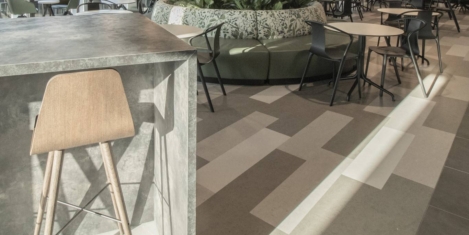To provide the best experiences, we use technologies like cookies to store and/or access device information. Consenting to these technologies will allow us to process data such as browsing behaviour or unique IDs on this site. Not consenting or withdrawing consent, may adversely affect certain features and functions.
The technical storage or access is strictly necessary for the legitimate purpose of enabling the use of a specific service explicitly requested by the subscriber or user, or for the sole purpose of carrying out the transmission of a communication over an electronic communications network.
The technical storage or access is necessary for the legitimate purpose of storing preferences that are not requested by the subscriber or user.
The technical storage or access that is used exclusively for statistical purposes.
The technical storage or access that is used exclusively for anonymous statistical purposes. Without a subpoena, voluntary compliance on the part of your Internet Service Provider, or additional records from a third party, information stored or retrieved for this purpose alone cannot usually be used to identify you.
The technical storage or access is required to create user profiles to send advertising, or to track the user on a website or across several websites for similar marketing purposes.
 New research from Aon, claims that flexible benefits programmes continue to be popular within organisations, despite communication challenges and a potential impact from 2018’s optional repayment arrangement (OpRA) regulations. Aon’s Benefits and Trends Survey 2019 claims that 45 percent of employers say they already have an online benefits or flex portal, with a further 20 percent saying they plan to introduce one within the next three years. This compares with last year’s 37 percent and 26 percent, respectively. (more…)
New research from Aon, claims that flexible benefits programmes continue to be popular within organisations, despite communication challenges and a potential impact from 2018’s optional repayment arrangement (OpRA) regulations. Aon’s Benefits and Trends Survey 2019 claims that 45 percent of employers say they already have an online benefits or flex portal, with a further 20 percent saying they plan to introduce one within the next three years. This compares with last year’s 37 percent and 26 percent, respectively. (more…)































July 22, 2019
Problems with noise at work? A lot of it is in our heads 0
by Anna King • Comment, Wellbeing, Workplace design
(more…)